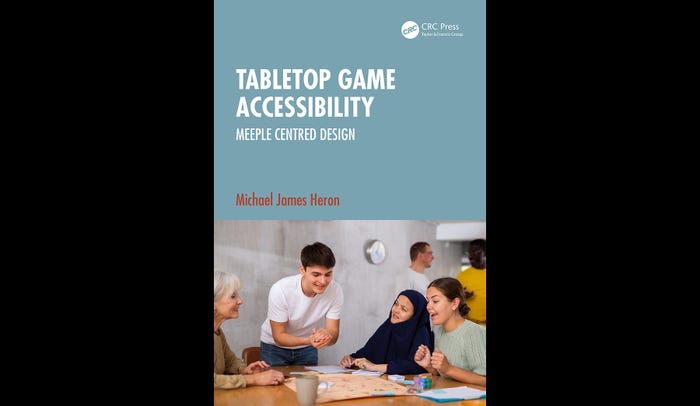This Week In Video Game Criticism: Apocalypse Now, Social Games Later
We're partnering with Critical Distance to present some of the week's most inspiring writing about the art and design of video games -- this week, from post-apocalyptic games to Oregon Trail and more.

[We're partnering with game criticism site Critical Distance to present some of the week's most inspiring writing about the art and design of video games from commentators worldwide. This week, Ben Abraham examines stories on post-apocalyptic games, social titles, and The God Of Oregon Trail.] Penny Arcade Expo East in Boston was the big thing to be at and be seen at last week, but it doesn’t seem to have slowed the critical game blogosphere. Neither has the onset of April, and despite its attendant silly April fool’s day posts -- which we fortunately seem to have avoided - we present you with only the best pieces of serious games criticism of the week. First, a couple of follow-ups and responses, with Chris Green adding to points he raised in a previous post by citing examples of how some games give death meaning, Karl Parakenings at Design Robot responds to Michael Abbott’s McDonald’s Happy Meal toy experiment of last week, and Dan Apczynski at GamerMelodico has a few things to add to Tom Bissell’s excellent Observer piece from last week. Raph Koster writes on his blog a tidy list of thing that ‘Core gamers should know about social games’, and he plays the apologist well. Next up is an excellent pair of posts that do well to be read together; the first is Matthew Burns at Magical Wasteland writing about three treatments of apocalyptic Washington DC. Burns reminds us that, “…it’s worth considering how the worst decisions in the world can be made by agreeable people on a clear day in an airy building made of gleaming stone. Perhaps landmarks can be useful for more than the fantasy of seeing them maimed.” Then, in a similar vein, Jonathan McCalmont has an essay about ‘The Changing Face of the American Apocalypse’ that I highly recommend reading. McCalmont touches on a fascinating subject by looking at the why the Modern Warfare and Bad Company series of games can lay claim a realistic experience and still include plot devices like nuclear war and a Russian invasion. He wonders in particular: “What is it that makes an invasion of the continental US by ultranationalist Russians seem ‘realistic’ enough to form a viable plot-line for not one but two series of games that trade upon their robust commitment to realism? The answer is rooted in the character of American politics and the realities of academic life.” The prolific Scott Juster of the Experience Points blog doesn’t usually feel compelled to play most character driven narrative games and this week considers why it is that those games that employ prop-like peripherals tend to engage him more. I wonder if Juster would enjoy Tony Hawk: Ride in the same way? Elsewhere, Dan Bruno at Cruise Elroy explains to the non-attendees of PAX how the games that were playable while waiting in line worked, and where they succeeded and failed. From IGN’s PS3 site, Levi Buchanan writes about “Accidental Edutainment” – suggesting that “God of War III is the new Oregon Trail.” Never having attended a U.S. school means I have no first hand experience with The Oregon Trail, and yet it crosses cultural boundaries and has entered the collective unconscious in a way that I’m reluctant to believe God of War III has. Still, the piece comes recommended by Eric Swain, so that counts for something. The Game Locker continues the series of ‘Games Worth Remembering’ with the first half of a multi-part video essay on Ico & Shadow of the Colossus. If you liked his video essay on Flower we linked to a few weeks ago, you’ll love the latest installment. In other notable links, Fraser Allison at a visually revamped Red Kings Dream writes this week about the Xbox and how it might not be the unanimously declared “winner” of the console wars, and yet, “The word “Xbox” has been chosen to represent all videogames – or at least the videogames predominantly played by young men” and so has captured significant ‘mindshare’ in the marketplace. An interesting phenomenon and one I would not have consciously noticed otherwise. Georgia Tech doctoral candidate Simon Ferrari wrote a lengthy analysis of Final Fantasy XIII this week, and while I’ve yet to make my way through it all, Kirk Hamilton attests to its excellence. Additionally, Daniel Weissenberger at Game Critics has a mulit-parter on Heavy Rain, with the first postulating that ‘In many way’s [it’s] not well written’. Part two shows no signs of improvement for Weissenberger. The Border House solicits responses from a number of game developers on the important subject of “Why there are no playable male characters in video games”. Wait, did an April Fools piece just sneak in here? Michael Abbott of The Brainy Gamer elucidates on the subject of why Cave Story deserves its critical acclaim. I’ve long seen the game held up as an exemplary indie title, but until now I’d yet to come across any convincing explanations as to why. David Carlton belatedly looks at Jesse Schell’s DICE talk, weaving in a plethora of sources and a discussion of the Japanese board game Go: "I love video games, I don’t like extrinsic motivators, but here we have a talk about video games penetrating broadly through society that is being read widely as linking the two!" Ferguson at Interactive Illuminatus wants to make a case for expression, placing it within a discussion of games and art: "I think there's a reason two of our most beloved games--chess and poker--are also major contributors to our language. Expressions such as "checkmate," "pawn," "playing the hand your dealt," "calling his bluff," "ace in the hole," don't have real linguistic equivalents. They are areas of expression these games have claimed a monopoly over, and it won't take much effort to find many other expressions that find their roots in games." Last but not least, I usually refrain from linking to other link-dump style posts in TWIVGC but this week Mitch Krpata doesn’t put a foot wrong with his excellently curated list of ‘Friday Afternoon Tidbits’ – too many good things to mention them all, but I recommend every single one.
About the Author(s)
You May Also Like













